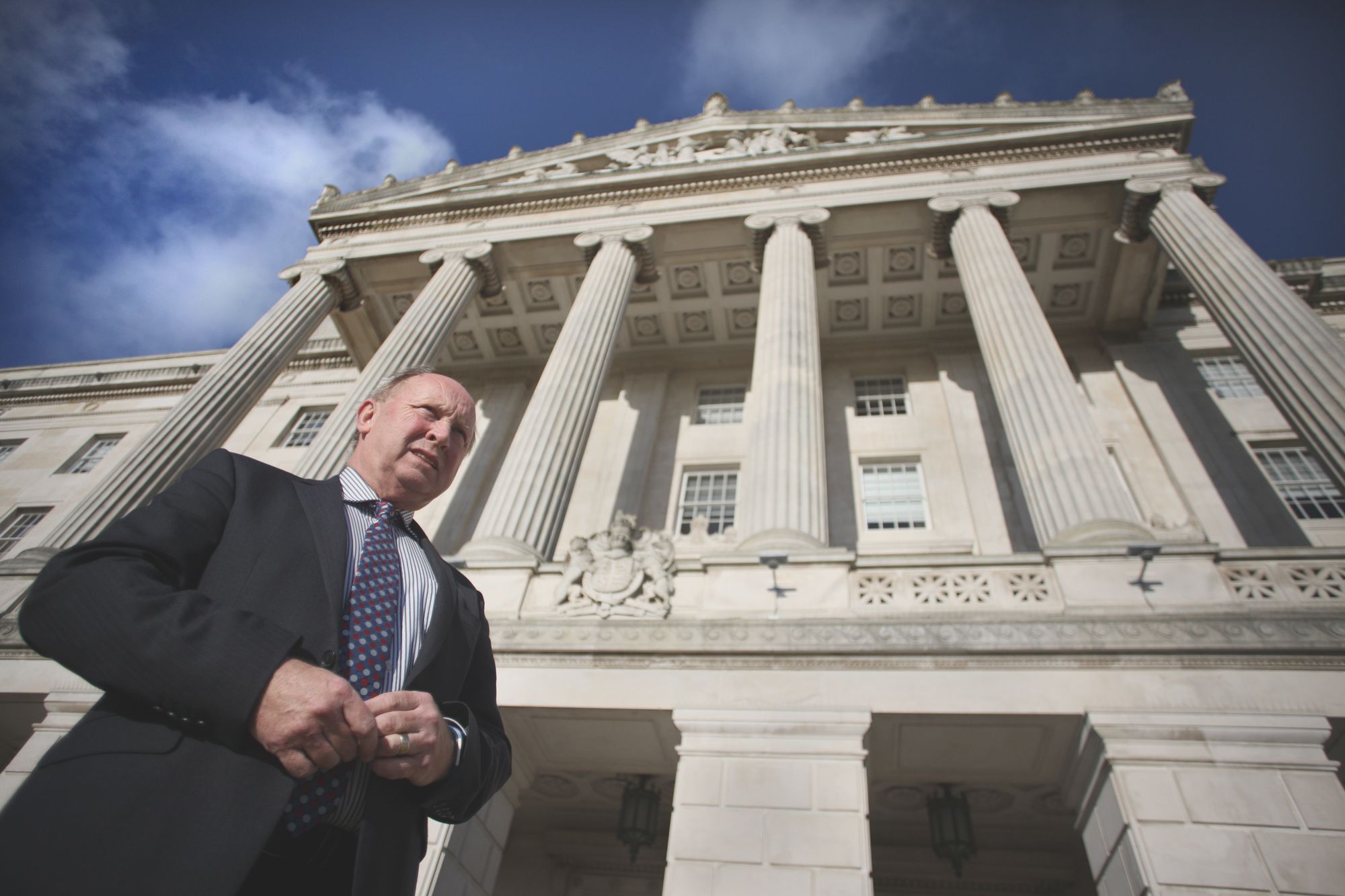AFTER a quarter-century of devolution we might be entitled to think that the propensity of unionists to defer to those in Britain they feel to be their superiors would have waned a little; but not a bit of it. And five years after the brutal lesson in realpolitik handed to Arlene Foster and the DUP by Boris Johnson and the Tories, we might also be entitled to think that any unionist would think long and hard before entering into an arrangement with the raucous right of British politics.
But an English accent has always had a fatal allure for unionists and loyalists, whether it belongs to an Anglo-Irish minor aristocrat in South Down or an old Etonian wide boy.
It’s tempting to indulge in a little schadenfreude after TUV leader Jim Allister suffered a wince-inducing humiliation at the hands of Reform UK owner Nigel Farage, who in one sentence dismantled the electoral arrangement Mr Allister had arrived at with ousted Reform leader Richard Tice. After all, Mr Allister has wasted no opportunity to lambast his former colleagues in the DUP for the ill-judged political liaisons with the Tories which have seen them turn the promised Brexit bonanza into the biggest blow to the union in its history.
At least the DUP had a day in the sun which saw them wangle a billion pounds from the hapless Theresa May administration in return for keeping the Tories in power. The TUV have received nothing from their already disastrous dalliance with Reform. The hope was that the reflected prestige of Mr Farage would boost the TUV’s election chances. Both parties share deeply conservative social and political values, but Mr Farage – feted daily by the British print and broadcast media – brings a reactionary glitter to right-wing politics that the dour Mr Allister could only ever dream of. The dream has turned into a nightmare, with the leader of the party that Mr Allister entered into a pact with endorsing his rival in the North Antrim seat, Ian Paisley Junior. The Reform UK logo remains on the TUV website – but for how long?
Sinn Féin’s deeply unimpressive showing in the local and EU elections down South should have been a chance for unionism to spread the word that Sinn Féin’s rise to power on both sides of the border is not inevitable after all; instead, unionism found itself entangled in another bout of internecine scrapping over another unrequited grá for another superficial political egomaniac. It’s just the latest existential mess brought about by a continued insistence on believing that British politicians have their interests at heart.
The fact is that such people, such parties, simply don’t care, and it is that growing realisation that has placed unionism in the slough of despond in which it finds itself.
Stuck on the wrong side of a sea border and serially spurned by those to whom they would bend the knee, new thinking is required from senior unionists; but the ache of rejection can be strangely addictive.








